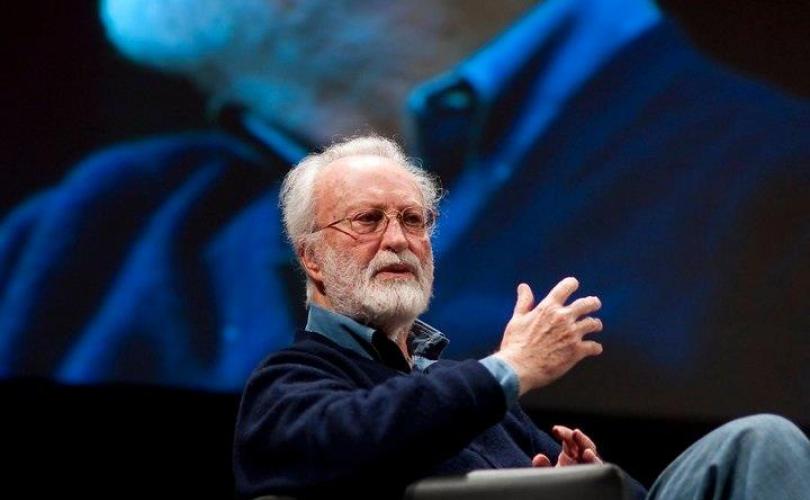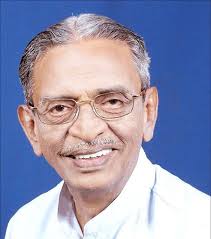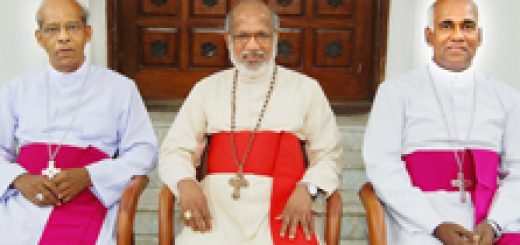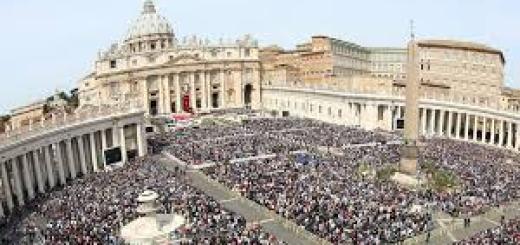Come face to face with Scalfari ! Who is papal interviewer Eugenio Scalfari?

Scalfari is known to any literate Italian, but most Anglophones had never heard of him until his discussions with Pope Francis.
By Hilary White, in LifeSite!

Wed July 30, 2014
 Note: Why is this article? It is because, La Republica, its founder and continuing editor Eugenio Scalfri and Pope Francis are intimately connected. Francis even claims his is the only paper he reads daily!
Note: Why is this article? It is because, La Republica, its founder and continuing editor Eugenio Scalfri and Pope Francis are intimately connected. Francis even claims his is the only paper he reads daily!
Of course what is written in La Republica and what Francis preaches publicly may appear totally opposed to each other, yet essentially and paradoxically Christian! Otherwise what is the relevance of a Pope preaching: Love your enimies! Yes he is practising it by befriending Scalfari so intimately?
Trust quotes or Substance?
For both, according to La Republica, there is no heaven, hell, purgatory or sin and Jesus is just a human being, not God or son of God (son of a bitch? Not discussed!) as no interviews are not made to appear within quotes in Republica, may be not to give too heavy a burden to Pope to explain himself; may be to assert that Scalfari as an accomplished journalist, can always report substance of interviews without quotes.
That gives Vatican officials the chance to say Scalfari is misrepresenting what Pope said or says. Quotes or no quotes, people know what to take seriously and what not. Otherwise why should Churchmen insist: “Voice of people, voice of God?” if a god of the kind we believe in, does exist? Hence the public clamor for a redefinition of the concept of god!
God=Mercy Personified?
“Mercy personified?” That is what Francis came up with the perfect definition of God,who saves everyone, yes every on, sinners and saints, because Jesus died for every and so his conclusion: “Prosalatism is a solemn nonsense!”
To the criticism by some that Francis has come to a doubly false conclusion he answered them in his homily at Mass on May 4, 2020(Lifesite). We give below the substance of what he said imitating Scalfari with and without quotes. To the question if Jesus’ death justifies all he said: “Everyone!” What does that mean? It means all:
Jesus’ Death saves all, Everyone!
Francis repeats: Everyone! It is Everyone! “Big, small, rich, poor, good and bad. All.” This “all” is the vision of the Lord who died for all. “But did he die for that wretch who made my life impossible?” He died for him too. “And for that brigand?”: “He died for him. For everyone” The Lord died for all. And also for people who do not believe in Him or are of other religions: he died for everyone. Does it mean that proselytism must be done: No! But He died for everyone, He justified everyone. Hence Proselytism is a solemn nonsense!
If that is the case this “know-nothing” can’t in conscience agree with statement of the so-called great Augustin of Hyppo: “The God who created you without you cannot save us without You!” just because he is called a saint! I never asked any God to create me!
Church is like a River!
Francis is reported to have quoted a Cardinal emeritus living in Vatican who said: the Church is like a river. Some members are closer to one bank or the other. But everyone is in the same river. “No one outside, everyone inside,” the Pope said. “The Lord wants it this way”. Jesus died for every one! And every one of our readers are fully free to follow the commanding dictates of his conscience that is the measuring rod with which a God has to judge!
To be forewarned is to be forearmed! So be prepared to come across many shocking, conflicting, contradictory, pradoxidal as well as many heartening views and ideas Eugenio Scalfari is advocating as an outstanding journalist and politician in Italy. Remember La Republica is also the second widely read daily in Italy!james kottoor, editor ccv.
Please read below what Hilary White
writes about the world renowned Scalfari
On July 13, Eugenio Scalfari published his third conversation with Pope Francis for La Repubblica in the last ten months. And again the remarks he attributed to the pope generated widespread controversy. Scalfari admits the interviews are “reconstructions” from memory – he takes no notes and does not use a recorder. After each of Scalfari’s reports, the Vatican has had to issue clarifications stressing that the quotes are not accurate.
As non-Italians attempt to interpret these interviews and assess their significance, what might be missing for many is the background of this man who is interviewing the pope. Though the name Eugenio Scalfari is instantly recognizable to any literate Italian, it was nearly unknown in the English-speaking world until the first of the articles appeared in the fall of 2013.
So who is Eugenio Scalfari?
Most North American commentators have been calling him some variation on “veteran Italian journalist,” and many have noted his atheism, but to Italians he is much more.
The founder of La Repubblica and its editor from 1976 to 1996, Scalfari served as a member of Italy’s Chamber of Deputies from 1968-1972, was one of the founders of the leftist and anti-clericalist Radical Party in 1955, and is regarded as having been one of the leading voices in the drive to legalize divorce and abortion.
“In Italy Eugenio Scalfari is the symbol of secularism and of anti-clericalism,” Riccardo Cascioli, editor and the director of the Catholic opinion paper La Nuova Bussola Quotidiana, told LifeSiteNews. Scalfari’s is an “expression of a radical-bourgeois class, which for these forty years has led La Repubblica to conduct all of the major anti-Catholic battles,” from abortion to artificial procreation and the imposition of taxes on Church organizations that Cascioli said discriminate against schools that do not follow the state.
“La Repubblica has never missed an opportunity to throw mud on the Church,” said Cascioli. “Despite this, or perhaps because of it, La Repubblica is certainly the most widely read newspaper by ‘progressive’ Catholics, and in those same environments Scalfari is treated with the utmost respect.”
He is also a “very famous journalist with the ambition to also be a philosopher,” Cascioli added. After Corriere della Sera, La Repubblica is “Italy’s second newspaper in terms of sales,” he said, which gives Scalfari a permanent platform in Italian politics. Though having stepped down as editor, Cascioli says Scalfari remains the paper’s main editorial writer.
Throughout his long political career, Scalfari has “been everything” politically, said Antonio Margheriti Mastino, a journalist who writes for the newspaper Libero Quotidiano. Early in his career Scalfari was associated with the Italian fascists and “became anti-fascist when the regime fell,” Mastino told LifeSiteNews. “He then turned Republican and then radical/liberal since the 1950s.”
“He became communist in the seventies, when the Communist Party seemed to be going to win the elections. In the Eighties he became a Christian Democrat supporter; in the Nineties he opposed the socialists and Christian Democrats when these two parties fell,” Mastino said. Since then, he has become “the spiritual teacher of the Left,” with his columns ironically nicknamed “High Mass on Sunday.”
Scalfari was also one of the founders of the Radical Party, aptly named for holding a place so far to the left that it would simply fall off the scale of American, Canadian or British political opinion. It has no legitimate mainstream political equivalent in the Anglo countries.
The Radical Party of Italy describes itself as “liberal” and “transnational,” pro-EU and UN, “anti-prohibition” – meaning it opposes the criminalization of recreational drugs – and strongly pro-abortion and pro-euthanasia. On Italian domestic policy, the Radicals work tirelessly to discredit the Catholic Church and particularly for the repeal of the Concordat, the law that recognizes the Holy See as independent of the Italian state. The party lists its “important values” as “secularism, “environmentalism,” “Europeanism,” and “Atlanticism.”
While its policies are too radical for most voters, the party serves to pull the general tenor of Italian politics further to the left. Indeed, so extreme are its policies that it generally only succeeds in taking seats at the municipal and regional elections. The notable exception is Emma Bonino, a former illegal abortionist, who was appointed by a recent coalition government as Italy’s foreign minister.
By the late 1960s, Scalfari had won a seat in the House of Deputies under the more respectable flag of the Socialists until the end of his single term in 1972. Mastino said it is now the “full spectrum” of the left that Scalfari represents and not only this or that particular party, a move that has been criticized by the Radicals. Mastino said that while Scalfari’s direct involvement in the party politics of the left may now be informal, he and his newspaper remain the extreme movement’s national mouthpiece.
He is, Mastino said, the original “champagne socialist,” a man “well-off, moralistic, and a radical liberal.”
“The important thing to remember about him is that he has guided La Repubblica to be the second [most prominent] Italian national newspaper and the newspaper of the entire left, especially the radical-liberal and anti-Berlusconi left. La Repubblica has been at the head of the cultural battles to change the country to match the goals of the radical and liberal left, and to change the Church into the direction of the ‘progressives’ and liberals.”
The 90 year-old Scalfari’s political influence over several decades was described on Ilsussidiario.net as “a blaze of success, starting as a journalist, followed by a satisfying career as a writer until landing in politics.”
“His articles have been true social complaints, which have found their highest expression in the emergence of some important referendums such as ones on abortion and divorce.”
Gianfranco Spadaccia, writing for Radio Radicale, the media arm of the Radical Party, criticized Scalfari’s journalistic success while acknowledging his “leading role” in pushing Italy towards the left as “a person who believes in the power and influence of press organs.” “First with ‘L’Espresso and then with La Repubblica Scalfari’s motto has always been that of publishing not ‘a’ but ‘the’ ‘newspaper of the leading class’.”
Scalfari gained huge popularity in Italy for his steady stream of critical editorials of the hated Silvio Berlusconi that are thought to have greatly contributed to the former Prime Minister’s political downfall. More recently, Scalfari has used that influence to push Italy into accepting artificial procreation procedures, and particularly opposed Pope Benedict’s efforts to limit the law allowing them.
But behind the topical news hooks of IVF and embryo implantation has always stood his foundational opposition to any influence of the Church in the public life of Italy, a driving motive of the Radicals across Italy and Europe.
In 2008, he responded to the suggestion for a more restrictive abortion law, saying, “With regard to the law on abortion lay people believe that it protects conscious motherhood and freedom of choice for women. I am also in favor of increasing the flow of information that should be provided to women about the possible effects of abortion as well as on artificial insemination,” Scalfari wrote. “Everything else, beginning with the so-called moratorium, is totally abhorrent. It's a pure propaganda tool to equate abortion, allowed only at certain times and circumstances, with the death penalty.”
His influence as a pioneer in political journalism has been acknowledged for some time. In 2008, long before non-Italian Catholics learned his name, the notable Norwegian journalist Per Egil Hegge said that Scalfari “will always occupy an important place in Italian media history, and not only because he established and founded the daily newspaper La Repubblica in January 1976, which represented a completely new departure in the history of the Italian press: it was independent of any political party.”
“The paper he founded was a left-leaning liberal publication, which recruited staff from the Italian left, and particularly from the intellectual circles with varying degrees of ties to Enrico Berlinguer’s Communist party,” Hegge wrote.
“Had he been writing in English, there is little reason to doubt that he would have been world-famous,” he added.
















